By Bedri Çoku
Memorie.al/ publishes the unknown testimonies of Bedri Çoku, originally from the village of Muçias in the district of Lushnja, who at the age of 19 while performing compulsory military service in the district of Gjirokastra, was arrested by two senior officers of the State Security and after a “unmasking” public trial on charges mounted in that city’s cinema, he was convicted of agitation and propaganda along with his brother, Chaushi, for the sole “fault” that their father had suffered for several years as a political prisoner in forced labor camps from where he was released in 1959. Rare testimonies of Bedri Çoku who spent 24 years in the prisons of Spaç, Burrel and Qafë Barit and together with his two brothers, Esat and Çaushi and their father, Azem, suffered 64 years in prison in the camps and prisons of the communist regime of Enver Hoxha, being released only in February 1991. Memoirs of Bedri Çoku masterfully described in his book “The uprising that shook the dictatorship”, which take off is mainly used in the Spaç Revolt in May 1973, where he, as one of its main organizers, sheds light for the first time by making public some unknown events and facts from that revolt where the flag was raised without the red star of communism, and until his work as General Director of Camps and Prisons after the ’90s, where he “arrested” his close friend, the accomplice of the dictatorship camps and prisons and sent him to the cells of’ Prison 313 ‘. Tirana, where most of the former Political Bureau of the Central Committee of the ALP headed by Ramiz Alia and Nexhmije Hoxha were serving their sentences.
The uprising that shook the dictatorship
(Based on a true story)
“To raise the flag, without the communist star, I expressed the opinion that, unable to find a red sheet, we would break our hands and, with our blood, paint the white cloth…! The first to cut his hand with a knife was my brother, Çaushi, the second Gëzim Medolli, Bedri Çoku, Gjet Kadeli, Ulsi Pashollari, and others…”
Author
We very much hoped for European Security and Cooperation which was being carried out at a dizzying speed under the special care of the United States of America. Rightly all mankind was eagerly awaiting the great historical moment. Signing for the Understanding of the Peoples of Europe, Western Democratic States and Eastern Communist States, which were still suffering from dictatorial regimes, to establish together a new order of peace and cooperation in the world. We hoped that Albania on this occasion as well. She would sign in Helsinki this Act for the Fates of Humanity, as a representative of this International Political Organization. We were convinced that our country, although incomparable to the countries of the East, would, by grace or by accident, join the Treaty of Peace and Cooperation with Europe (OSCE).
Live just to show me
I met Luke, my accomplice, for the first time between barbed wire, in the famous Spaç prison. We later befriended the deep galleries of the mine, where political prisoners were forced to work as slaves to extract copper and gold-rich pyrite. This was probably one of the reasons we became more attached, not only to the same family worries and problems, but also to our political and social views. The friendship was also valid for overcoming the clashes with the people of the command, especially regarding the realization or not of the obligatory high norm that, if not fulfilled within eight working hours, the political prisoner was forced to submit to the savagery of the ignorant ruthless, who were policemen and officers recruited in different villages or towns of the country, mainly in agricultural cooperatives, people who boasted of police uniform and great zeal to torture “enemies of the party and popular power”, even for a slightly higher salary than they received in cooperatives. These desolate poor, after undergoing two months of training to master the conspiratorial method of State Security, exercising with iron will the force of the “dictatorship of the proletariat” against the opponents of the regime.
Before taking up their duties as police officers, or prison officers, they were required to hold their first official meeting in the office of the most trusted member of the penitentiary administration, the commissar, who was also the party-state secretary. for the staff of the state prison administration. He would gossip to them once and for all about his communist ideals and allegiance to the party and the issue of building a socialist society, in the conditions of the fierce imperialist-revisionist siege. He advised them as he was worried that he would forget, as he did with all his associates: “If one day the political prisoners managed to overthrow the popular power, without a doubt the police and prison officers would be the first to stripped alive from the hatred and savagery of sworn enemies, then it would be the turn of others … They should have no mercy on anyone who would find themselves enlisted in the brigades of forced labor, without reward, condemned by the will of the people, as an enemy of the party and of the popular power, to atone for the grave guilt he had committed”.
Officers, coming from different cities, generally with repeated violations of military regulations, or for misconduct, were cunningly told that, in the capacity of prison officer, they were considered equally powerful in the decisions they would make against the life of a political prisoner, as the great commander himself, Comrade Enver Hoxha, would do in the face of any sworn enemy against their blood-thirsty power. With these ignorant and immoral ones, the communist government took the lives of its political opponents, when they found a reason, especially for not completing the “cycle” of forced labor, within certain hours. In these cases, any prisoner was declared a saboteur, not only for the unfulfilled plan of the brigade, but also for the brigade of the next shift, which would probably remain unemployed. The “completed work cycle” was called when the group consisting of the miner (like me and Lukia), at the same time, responsible for the work done in groups with the two wagons, carried out the entire work process on the production front. The miner (according to the rule set by the command), had as his process the placement of the armor at the front, assisted by the wagons, then, with the hammer, he had to carry the sons to the front of the front cleared of explosive material prepared by the previous shift.
This happened after the wagons appointed by the group command, without the initial consent of the miner, had cleared the front from the previous explosion, transporting it out of the gallery when it was and ‘, while the ore was emptied through trimoz * with planks, where the machines with spondens high, took it to the copper or pyrite factories. If the front of the work had not been cleaned of the material produced by the blasting of the previous mines, the miner, in this case, would not have been able to place armature and prepare the boats, for the next blast. Here was also played the command game with the appointments of wagon. If he wanted to punish a miner, in the monthly list of the composition of the working group, he was assigned wagons with health problems, or the elderly, with little chance of achieving the “cycle”. (Marked to be punished, for reasons only the command knew). In this case, the leader of the group, the miner, was left with the failure of the “cycle” and he was subjected to inhuman torture, depending on the mood of the police and service officers of that day. The following types of torture were generally practiced:
- The convict was tied behind an iron pole, half-naked, in the snow or in torrential rain, while the other brigade was on duty. This happened after they had whipped him once and for all with a truncheon (rubber stick) or with a wooden stick and pressed with the heels of their boots … While in the summer they left him in the scorching sun, tied his hands and feet, lying on the hot rocks or on the plates lying on the ground to burn the meat …
- In the absence of these natural elements of torture, the ignorant loaded the wagon wheels on the prisoners’ necks. If he could not bear their weight, the weight would surely crush his lungs, neck bones and ribs … This was an unusual pleasure for human-faced beings and in the uniform of a prison policeman. …
- If the convict did not carry out the work plan, they were forbidden to meet with family members, as well as the food collected by them with many sacrifices. In the worst case, they insulted him, humiliated him in front of his accomplices, ordering some of them, morally degraded, to throw in the face the face that remained in the kitchen bins. Lucia and I helped each other escape these inhuman punishments. We worked hard and for another reason. Since we were without family help, we tried hard to exceed the norm of over 125%, which, according to barbaric lawmakers, “favored” political prisoners to gain 25%. With that money one liter of peanut oil could be bought, one kg. sugar and some packs of cigarettes … Working for such a volume of work, with a poor food for the prisoner, who worked in shifts in a primitive mine, with only calories to get in and out of the gallery, it is understood what ‘ would happen to him within a few years. He would become so healthy that he would not even be able to see the devil, his beloved people, who hoped, the desert, to see him alive and free again.
We were both convicted as enemies, with 10 years of imprisonment (freedom of freedom), for undermining and overthrowing popular power, in the form of agitation and propaganda. However, the young age made us optimistic that one day the dictatorship in Albania would collapse, even if we suffered all the punishment given. We hoped so much for European Security and Cooperation, which was being carried out at breakneck speed, under the special care of the United States of America. Rightly all mankind was eagerly awaiting the great historical moment: The long-awaited Signing of the Understanding of the Peoples of Europe, of the Western and communist democracies of the East, still suffering under dictatorial regimes, to decide together a new order of peace and cooperation in the world.
We hoped that Albania, on this occasion, would sign this Act in Helsinki, for the fate of humanity, as a representative of this political organization, intercontinental. We were convinced that our country, although incomparable to other countries of the East, willingly or unwillingly, would join the Peace Treaty for Security and Co-operation in Europe (OSCE, today). Otherwise, we thought, there would be a greater folly than what had happened so far with our people, losing the long-awaited opportunity to escape from the anti-national and heartless regime of the communists … There were also those who said that this This would never happen as long as the communist clique installed after the Second World War ruled in Albania. And, heck, that’s what happened.
Two years before the presidents of Europe, America and Canada met in Helsinki to sign the Security and Co-operation Act in Europe, the party-state newspapers in Albania published in capital letters the decision of the Politburo of the Central Committee. of the Labor Party, that: “Socialist Albania, loyal to Marxism-Leninism, will never know the farce prepared by international imperialism and revisionism, convinced that it will not be the only one on the continent that will not go to Helsinki, to sign with confidence the European Security and Cooperation Act”. This was a bomb for the souls of political prisoners, an ominous signal, a hope-killer, but not only for them. The black news given not without purpose, seemingly brave by the bureaucrats of the central committee of the party-state, sparked the souls of the impoverished and humiliated people daily by the regime of great isolation. The news of Albania’s secession from freedom and the civilized world disappointed the Albanians, especially the young people, to the point that some of the brave ones, without any hesitation, set off towards the border in an attempt to escape the isolation and terror of regime. Many of them were left with barbed wire pierced by the bullets of the clone guards, or unharmed by the border dogs …
Immediately after this unexpected news, Lucia, surprisingly, began to act through some actions and words, which he had never done before. The accomplices rightly started calling him “Screech”. I, who was closer to him, seemed to have understood the reason for those actions, probably from the deep despair of the terrible decision of the communist clique, which was isolating Albania more and more from the countries of Europe and all of humanity. But also, from the fatigue and exhaustion of hard work; or from the longing of children and the despair of the death of the mother in a ghastly manner. Occasionally he was found without cigarettes … He began to raise his right arm up, shouting wildly: “Shot … shove … shove!” … He recited his poems, which he wrote and memorized them … Eh, how bad! What cruelty!
Brotherhood … carnage … The baby is moaning from hunger, the sister is sick for the brother. The mountains are weeping, the streams are roaring, the wolves are roaming. skulls of sons erode the jackals, wretched and wretched Albania! He did this, from time to time, in front of everyone, to tell his accomplices, so that they would realize that, at last, the hour of an uprising had come. That, for each of us, within the Ninth District of Hell, after the ominous decision of the regime not to join Europe, what was left for us to live?!
“What is happening to Albania that roams like hell?” They are Scythian puppies … that vomit like cobras. It is Tamerlane himself who entered as a robber … So, the homeland sank in blood, so life turned into a grave … It was completely different from what I had thought and understood … He confessed that this was how he had cried, in his cup sky, even then, small, in front of his father’s corpse, shot and cut to pieces with a knife, by the communists, as the first of the nationalists of Erseka province, who fought for Ethnic Albania … Even in adulthood he had screamed, when the state police, around midnight surrounded his house and rushed inside it with shouts and sharp orders, forcing Luke to carry all the belongings of the house and, together with them, the mother, the wife and the two children, a military vehicle, covered with raincoats, which exiled them to the deserted shore of the Narta swamp … Before the year in exile, they had thrown the bars to imprison him as an enemy of the party of the Albanian people. Medet! Medet! In prison, then, a few months later they brought the court decision for the divorce of the woman and the news, that she had left the exile, together with the two boys. The mother left alone on the shore of the Narta swamp … Well, the woman saved herself and the children from exile, what about his mother, the beginnings, in a hut near the lagoon?
While suffering from these events, a few days later, the man of command, with a feigned pity, handed over to Luke the ghastly telegram, for the mandate of the mother, which, as it was written in the telegram: swamp. To live alone”! She had said goodbye to the hostile world for her and her dear people. Desperate at heart, Lucia, my friend and companion, cried out in the cup of heaven, but not in the eyes of the men of command and those who could indulge in soul with his successive misfortunes, but there, in the gallery, among friends and to sincere friends who felt his pain as much as their own. He mourned deeply for the dear mother and the accomplices left her alone, until she emptied the grief of the poisoned soul.
When he rose to his feet, he swore in front of them that he would turn his sword-sword up and down, to strike as hard as he could the disgusted body of the communist dictatorship, without hesitating for a moment, to join his comrades and friends who wanted this: the defeat of the anti-human government edifice, an hour ago! That day, there was also the ceremony: “With Besa-Besa”! To organize and prepare for an action of rebellion against the conditions and anti-human treatment, why not of an enterprise that could extend its action even beyond barbed wire and barracks with armed soldiers to the teeth, which was with the great uprising of May 21, 1973, in the prison of Spaç, three days and three nights, under the National Flag of Skënderbeg, without the star, the symbol of international communism. /Memorie.al
Continues in the next issue




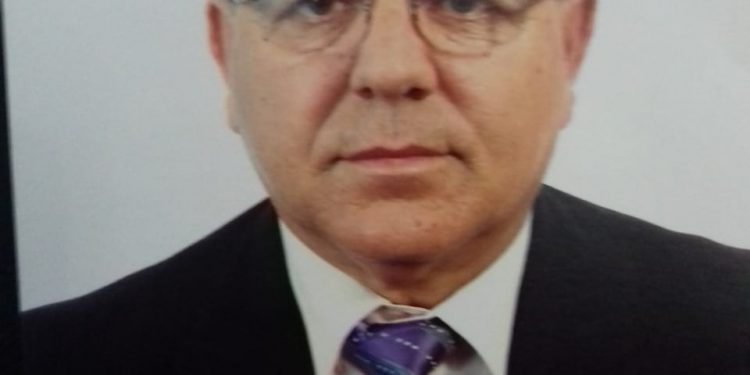
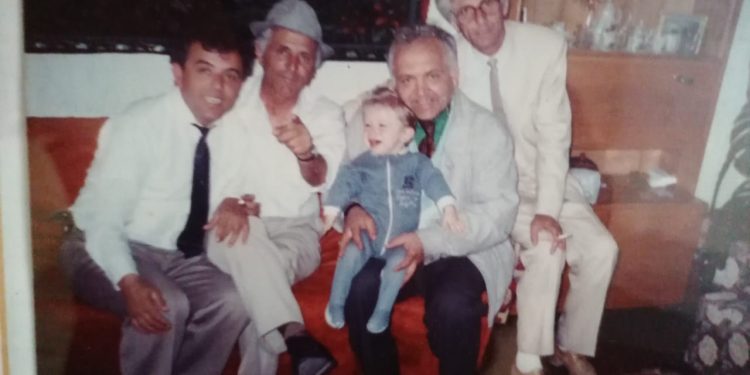
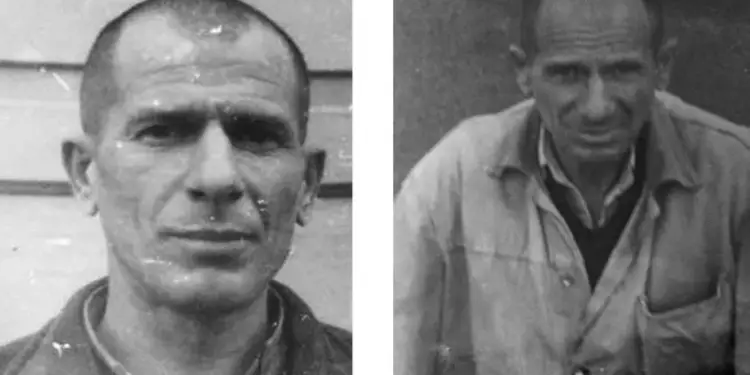
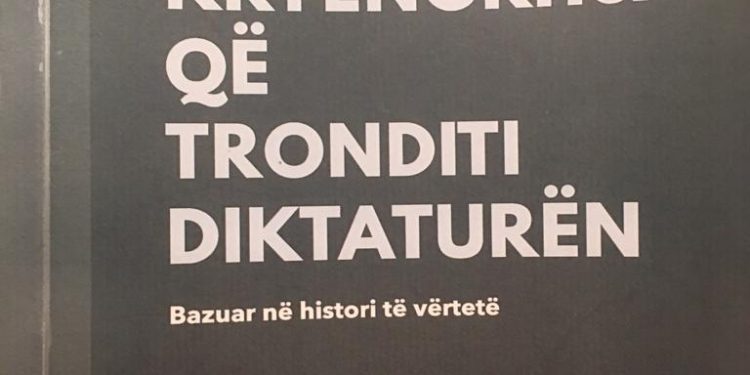
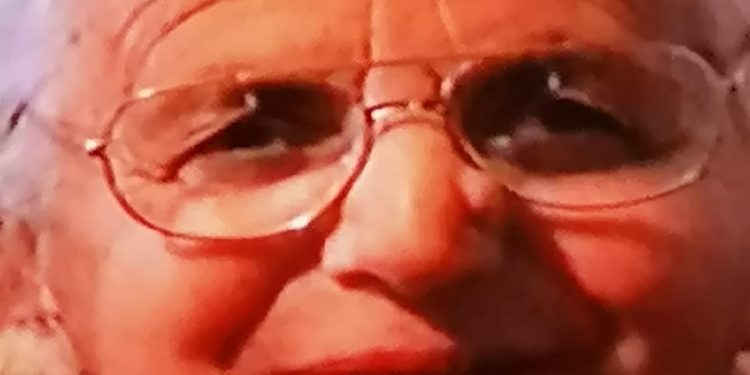

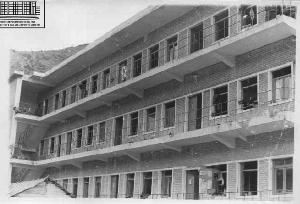
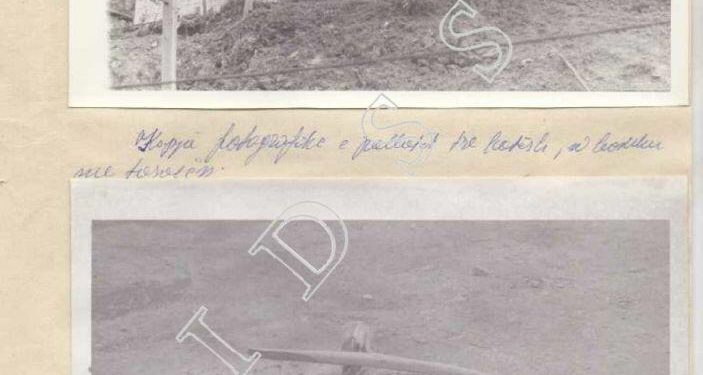
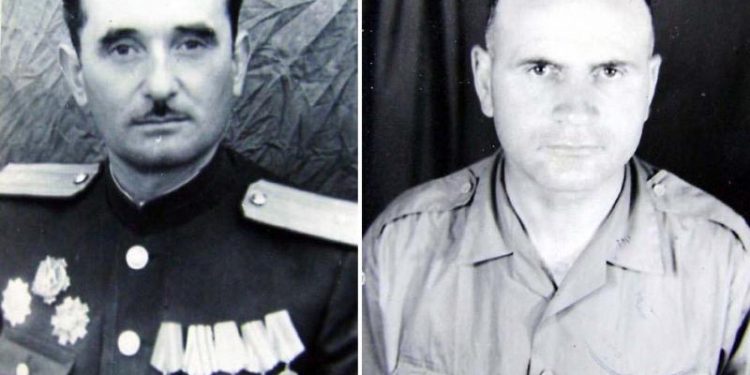
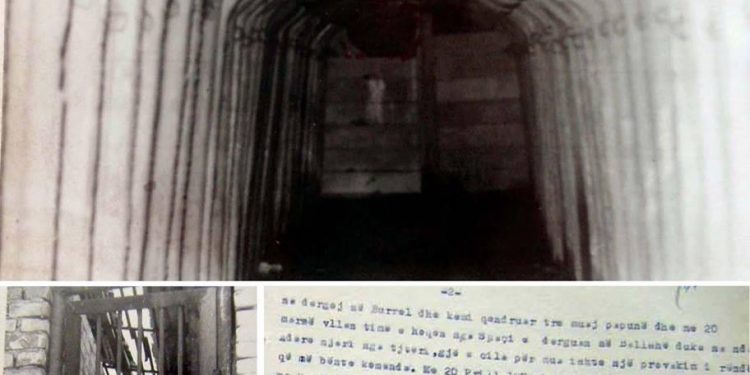
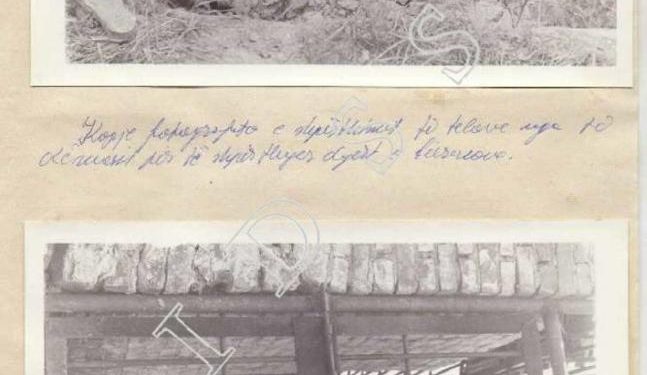
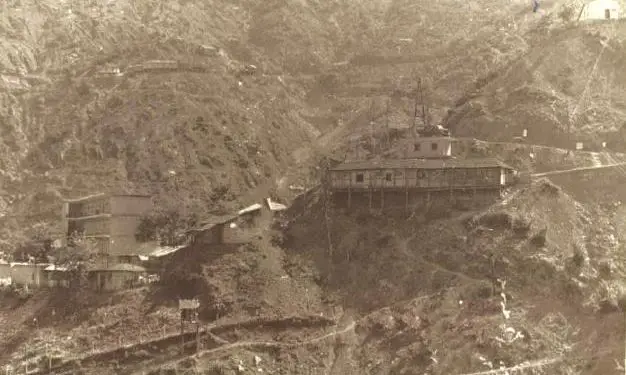
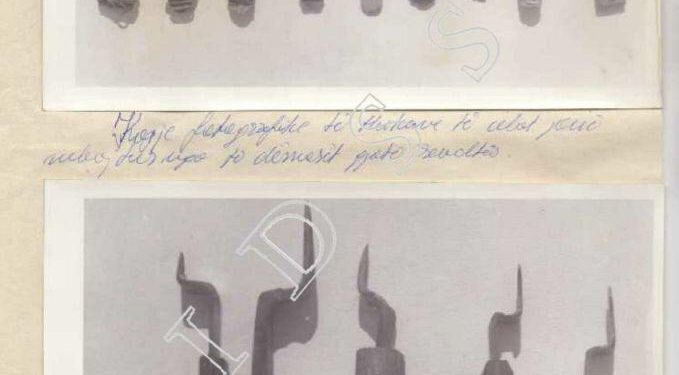
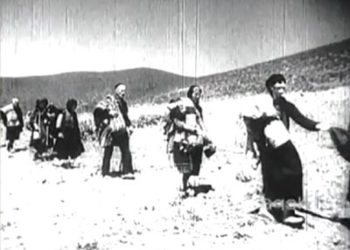
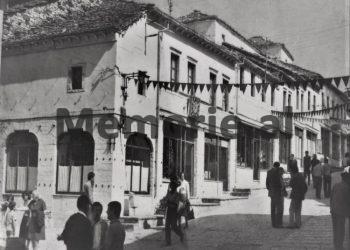

![“Count Durazzo and Mozart discussed this piece, as a few years prior he had attempted to stage it in the Theaters of Vienna; he even [discussed it] with Rousseau…” / The unknown history of the famous Durazzo family.](https://memorie.al/wp-content/uploads/2026/02/collagemozart_Durazzo-2-350x250.jpg)


